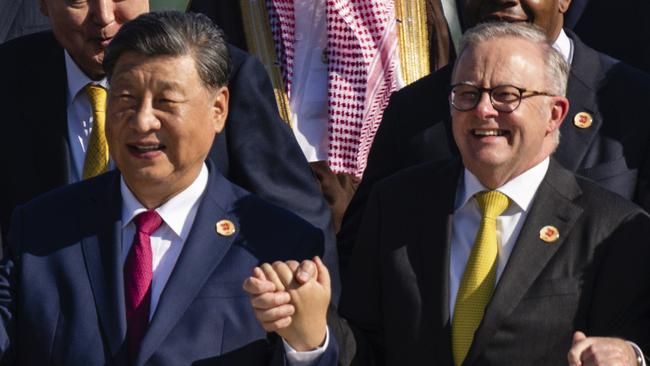
Unlike the Morrison government, which “fell under Washington’s anti-China spell,” the Prime Minister had demonstrated “strategic autonomy”, gushed the state-owned China Daily last week. In light of the “hawkish look” of US president-elect Donald Trump’s likely cabinet, Australia could “offer some useful reference” for American allies and partners, it pronounced.
This is up there with the Nigerians giving out awards for good governance, the Saudis hosting a global Gay and Lesbian Mardi Gras, and the Swedes being the ultimate authority on fine dining. It is not the headmaster handing out Albanese’s award, but the school bully.
Granted, Albanese is not the first Australian politician to be commended for his obeisance to the Middle Kingdom. Former Victorian premier Daniel Andrews proved a useful lackey by signing a Belt and Road agreement with China that Beijing used to undermine the Morrison government. The toadying increased tenfold when then-WA premier Mark ‘Mao’ McGowan, during his official trip to China last year, called for Albanese and all state and territory leaders to hold a national cabinet meeting in Beijing.
But obsequious premiers are of limited use. China’s aim has long been to divide the Five Eyes alliance, and to do that it must cultivate one of the respective heads of government.
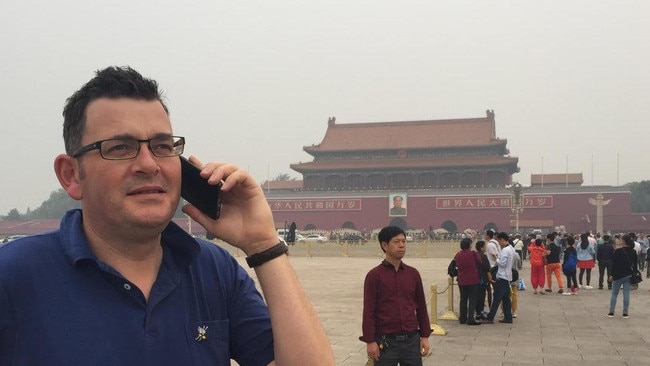
Former New Zealand prime minister Jacinda Ardern is a case in point. Having imposed trade sanctions on Australia following the Morrison government’s call for an inquiry into the outbreak of COVID-19, Beijing enticed the Ardern government with favourable trade deals. In return New Zealand distanced itself from its fellow Five Eyes members, particularly regarding joint criticism of China’s punitive actions in Hong Kong and its treatment of Uyghurs. Naturally, Beijing made full use of this discord for propaganda purposes, praising the Ardern government.
Beijing’s strategy was to appeal to Ardern’s grasping provincialism. In the case of Albanese, it did so by exploiting his pusillanimity. Just ask Shingo Yamagami, who served as Japan’s ambassador to Australia between 2021-23.
“There’s no question that Anthony Albanese has been weak and meek vis a vis China,” he told the Sydney Morning Herald last weekend. “This is common knowledge in the international community”.
All too true. When a Chinese destroyer intentionally endangered Royal Australian Navy divers last year by blasting them with sonar, Albanese was about to attend the APEC summit in San Francisco along with Chinese President Xi Jinping. The timing was no coincidence.
Probing for weakness, the Chinese were testing Albanese’s mettle. It was not until the summit’s conclusion the Australian government released details about the incident. Pathetically, the Prime Minister later repeatedly refused to answer whether he had raised the incident with Xi. You might say Albanese left San Francisco with flour in his hair.
Gone is the tough-talking leader who called out others for not safeguarding Australia’s interests. As opposition leader, Albanese capitalised on the revelation in 2022 that then Solomon Islands prime minister Manasseh Sogavare had signed a security pact with Beijing. It was, said Albanese, a “massive foreign policy failure” by the Morrison government.
Then shadow foreign affairs minister Penny Wong also played the hawk. “On Scott Morrison’s watch, our region has become less secure, and the risks Australia faces have become much greater,” she said.
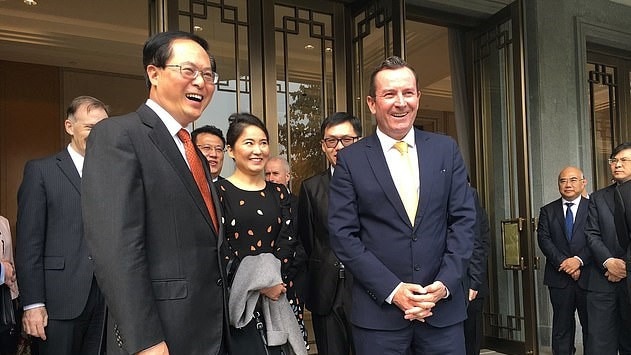
But if anything, Beijing has increased its influence in the region since Labor assumed government. As this masthead reported last week, the Australian High Commission in the Solomon Islands has refused to meet with Daniel Suidani, a former premier of Malaita province who vigorously opposes China’s encroachment. Forget asking our foreign affairs minister to explain. Wong refused to respond to questions, leading security analysts to conclude the Albanese government was placating China.
Last year East Timor blindsided Wong and Albanese by signing a security pact with China. Wong diverted questions to the Department of Foreign Affairs and Trade, which issued a feeble statement saying the agreement was “a matter for East Timor and China”. Is no-one in government aware East Timor is less than 700km from Darwin?
This occurred during Wong’s watch, but she has more important priorities. Last year, to the bemusement of British officials, Wong’s address at King’s College in London quickly turned into a Penny pity-party. Britain, she said, should share “uncomfortable” stories of colonisation with Pacific nations. You know, terribly harrowing stories like the fact Wong’s grandmother worked as a domestic servant for British colonists. Oh, the humanity!
Given Australia’s insipid stance, it is no wonder Beijing favours this government. It must also be delighted with the state of our defence force. Of Australia’s six Collins-class submarines, only one is operational.
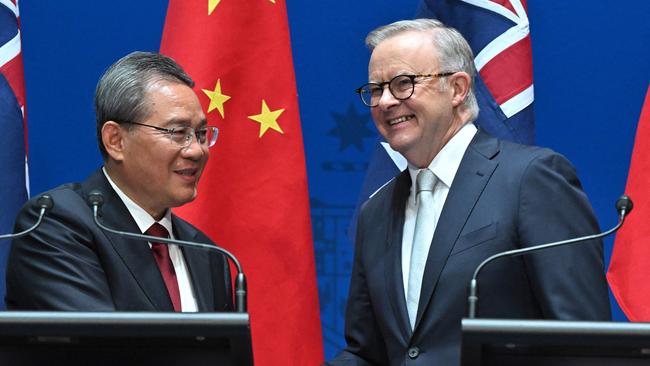
In August, former chief of army Peter Leahy warned Australia had become a “strategic liability” for the US, saying the ADF is “stretched too thin” and has a “massive infrastructure backlog”. Like Wong, Defence Minister Richard Marles is focused on the important jobs, such as ensuring RAAF special-purpose aircraft flights ferry his golf clubs around the world.
Had you asked Albanese at the beginning of last year what was the biggest threat to Australia, he would have repeated what he said during the voice referendum campaign. How would Australia be “perceived internationally” if the proposal did not carry, he asked.
It says a lot about Albanese’s political antenna, suffice to say it is not located on top of his head. If he wants to fret about how we are perceived internationally, he should think about the ramifications of the Trump presidency.
Currently Australia spends only 1.99 per cent of GDP on defence. Trump has made clear to NATO members he holds in contempt governments that spend less than three per cent of that measure on defence yet expect America to defend them in the event of conflict. Wish Albanese good luck in explaining to Trump his priority, to use a hackneyed expression, is transforming Australia into a “renewable energy superpower”.
During the election campaign, Albanese promised to “protect” Australia if he became prime minister. If anything, we are looking increasingly like a protectorate. In CCP-speak, Albanese’s “strategic autonomy” is strategic sycophancy.



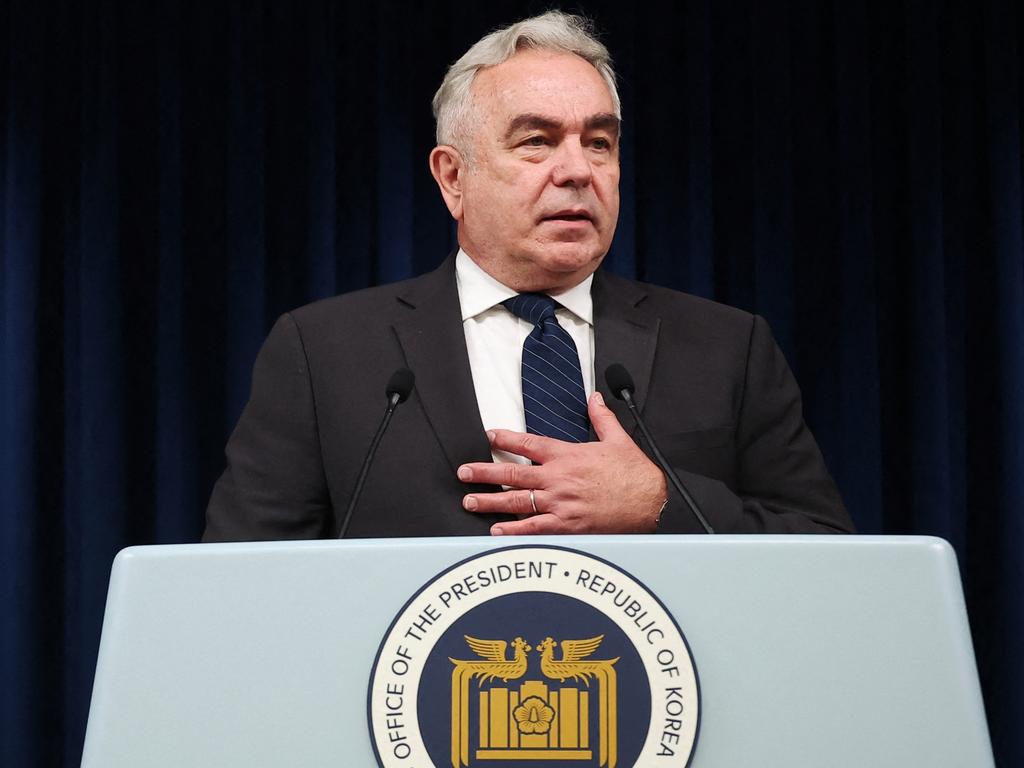


Hey everyone, guess who just picked up the school’s good citizen award? None other than our Anthony. Beijing announced on the eve of the G20 assembly in Rio de Janeiro it would bestow Albanese with a red star stamp.